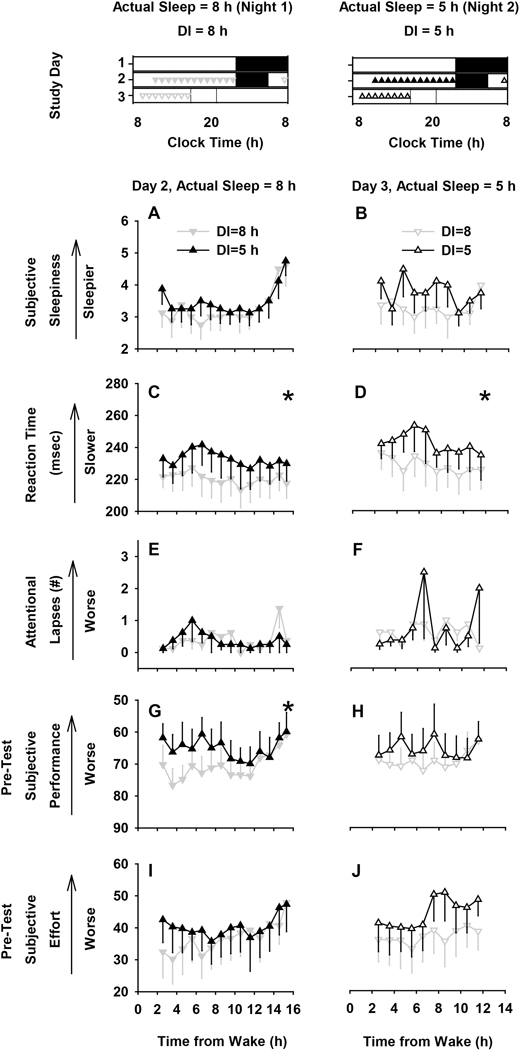Fig. 2. Effects of perceived sleep duration on neurobehavioral outcome measures.
Time course (mean±SEM) of neurobehavioral variables after an 8-hour sleep opportunity (left panels) and duration informed (DI) 8 h (▼) or 5 h (▲) and after a 5-hour sleep opportunity (right panels) and duration informed 8 h (ᐁ) and 5 h (Δ). Study protocol plotted in the first row illustrates the timing of the measures compared in the lower panels. Neurobehavioral variables included subjective sleepiness (A and B), reaction time (C and D), attentional failures (reaction time > 500 msec) (E and F), pre-test subjective performance rating (G and H) and pre-test subjective effort rating (I and J). * Signifies main effect of group p<0.05; repeated measures REML linear regression (main and interaction effects of group x time). There was a significant effect of time (p<0.05) only on subjective sleepiness in the 8 h actual sleep opportunity condition.

